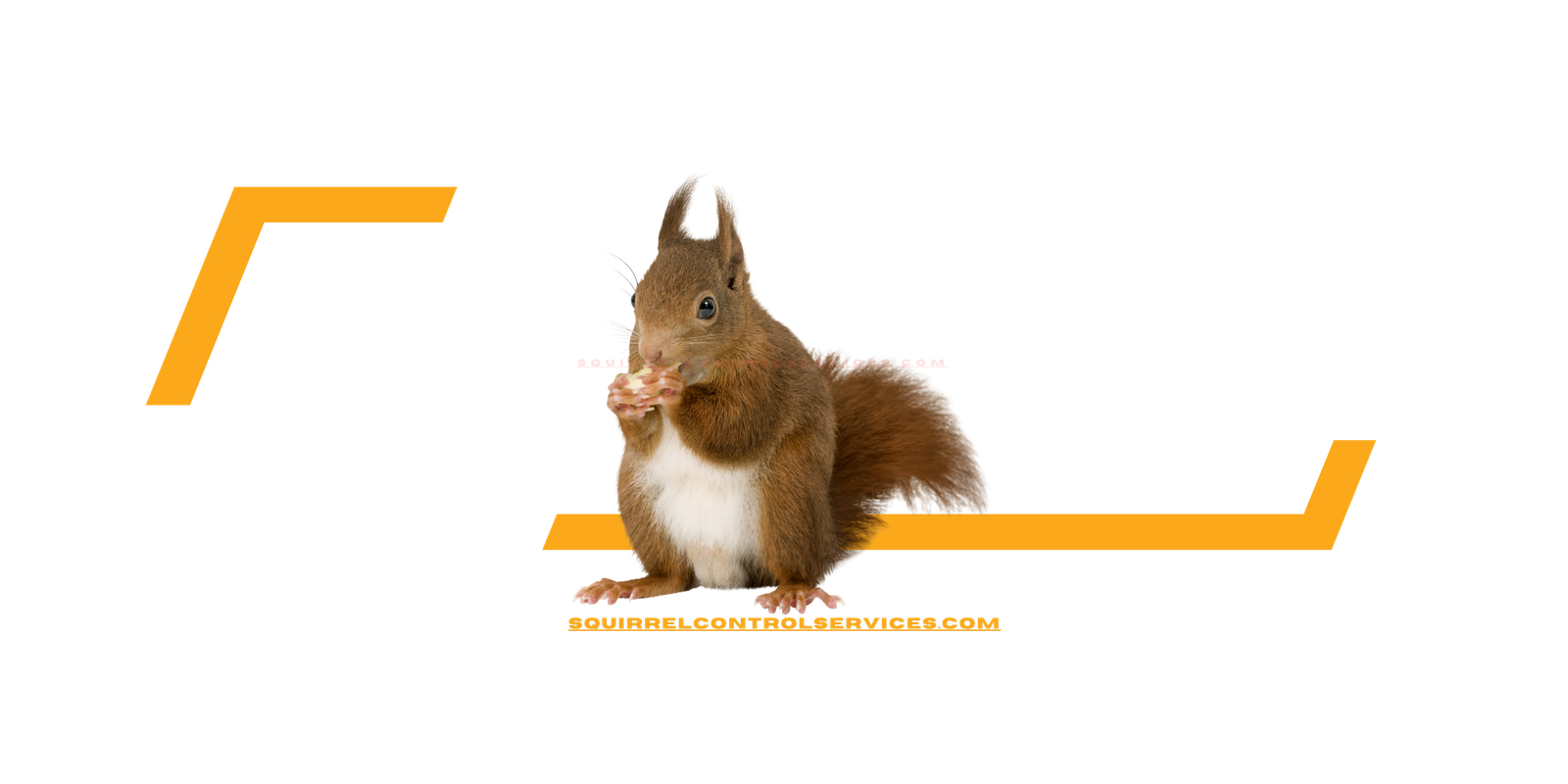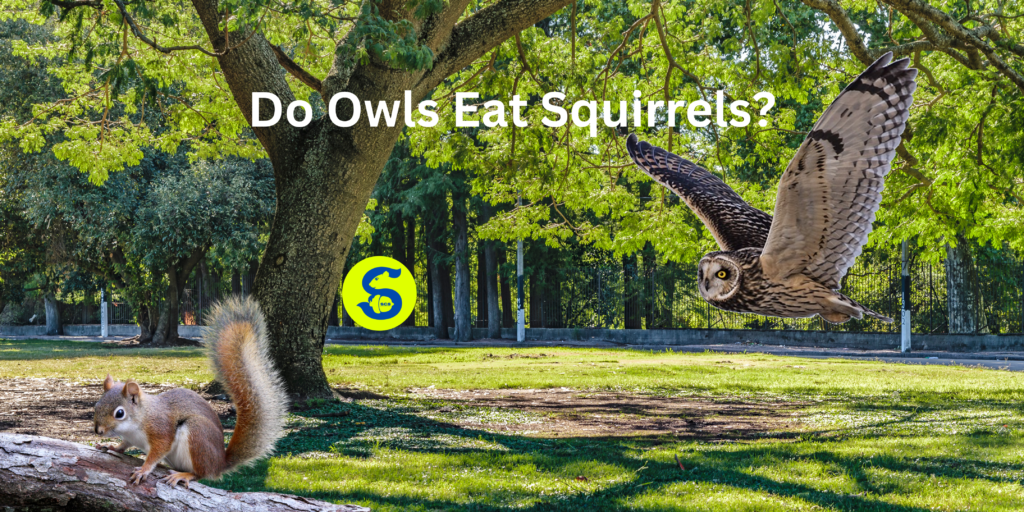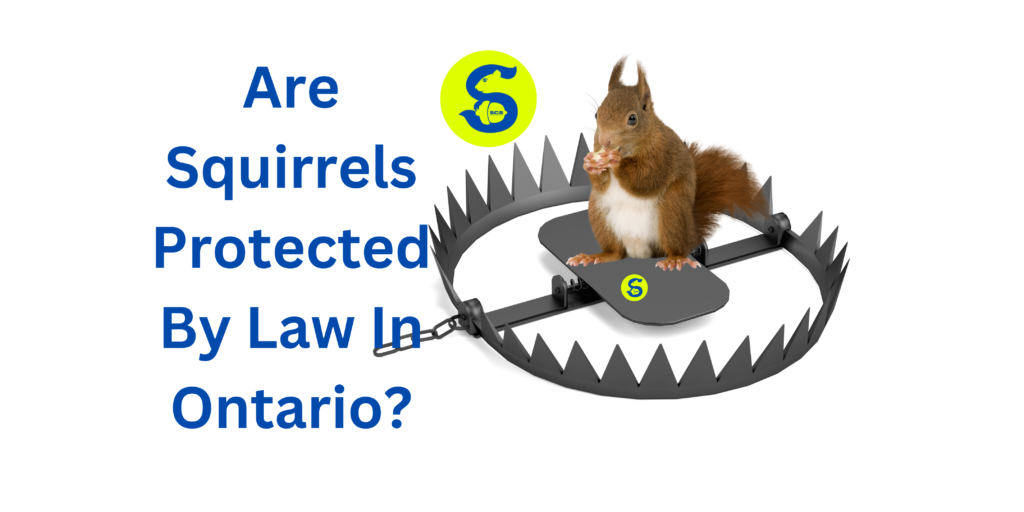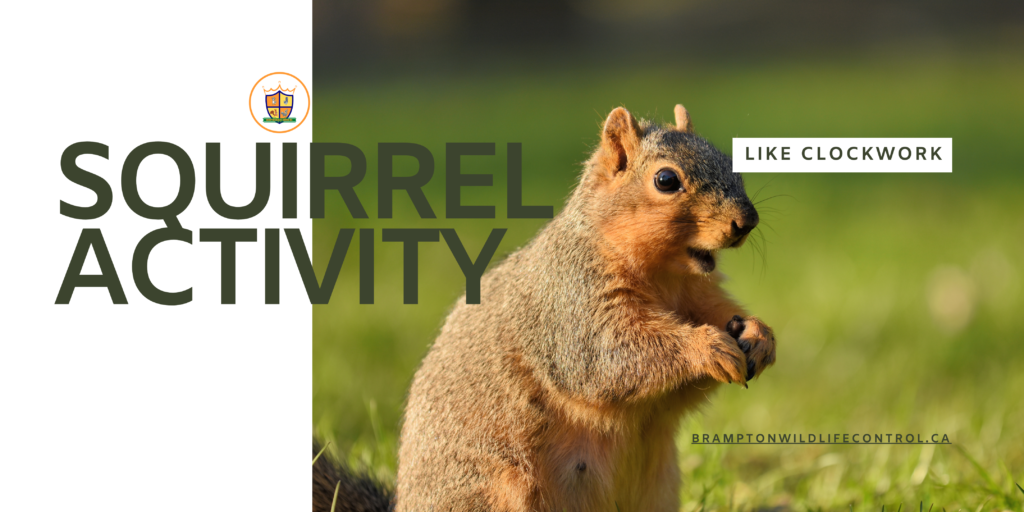Best Squirrel Repellent and Squirrel Deterrent Tactics
Introduction
Importance of Squirrel Deterrents
Squirrel deterrents are essential for homeowners looking to protect their property and maintain a peaceful environment. The best natural squirrel deterrents can help control the squirrel problem effectively, whether it’s using coyote urine or even plant squirrel-repelling flowers. Squirrels can cause significant damage to gardens, bird feeders, wooden structures such as decks or sheds, or even the roofs of homes. By implementing effective methods, such as using hot sauce to create an unpalatable taste on surfaces or areas frequented by squirrels, homeowners can prevent fire hazards and protect their food supply. Additionally, repelling these wild animals helps discourage them from nesting in unwanted areas, maintaining the integrity and safety of the property.
Understanding Squirrel Behaviour
There are several species of squirrels in the world, particularly gray squirrels, red squirrels, and fox squirrels, are fascinating wild animals known for their adaptability and resourcefulness. In many urban areas, these species thrive by invading human spaces in search of food. While their antics can be amusing, they often cause significant squirrel damage to gardens, attics, and electrical wiring. Understanding squirrel behavior is crucial for homeowners looking to prevent squirrels from becoming a nuisance. By learning more about their habits and natural environments, effective strategies can be developed to keep this wild animal at bay, ensuring both human and squirrel coexistence without conflict.
Why Squirrels Invade Human Spaces
Squirrels tend to invade areas where food and/or shelter is readily available, often turning our backyards into an all-you-can-eat buffet. These curious creatures are particularly attracted to pet food left out, and bird food, especially sunflower seeds. Their keen sense of smell also draws them to fallen fruit or nuts, and vegetable gardens. In addition to their quest for sustenance, squirrels seek the safety and shelter of an attic or other secluded spaces, which can provide a warm refuge during colder months. Understanding these motivations can help you take measures to deter them from invading your space and protect both your garden and home.
Squirrel Nesting Habits and Food Sources
Squirrels are fascinating creatures, known for their nesting habits and diverse diet. They build nests, called dreys, high in tree branches or sometimes in attics and other wooden structures, often causing significant squirrel damage to homes. During colder months, multiple squirrels may share the same nest, utilizing body heat to stay warm. Their diet is varied, ranging from bird seed, pet food, nuts, vegetables, flower beds, conifer cones, fungi, and plant bulbs. In times of hunger, they will even eat mice, small snakes, birds, and bird eggs. This opportunistic feeding behavior often leads to increased squirrel activity, which can be a nuisance for gardeners and homeowners alike. Squirrels’ affinity for both wild and cultivated foods can cause issues, especially when they dig up flower beds or raid bird feeders, attracted by the strong smell of bird seed.
Seasonal Behaviour Patterns of Squirrels
During the fall, squirrel activity reaches its peak as these agile creatures scurry about gathering food for the impending winter. This is the time when squirrels eat voraciously to build up their reserves, often digging up your vegetable garden in search of plant bulbs. Their foraging behavior can lead to significant garden damage, but that’s not the only problem they cause. In addition to their fall frenzy, squirrels’ activity spikes again in the spring as they prepare for their first litter of babies. Some squirrels may even have another litter in the fall, increasing their need for secure shelter. Desperate to keep their young safe from predators and the cold weather, squirrels will chew through roof vents, gnawed wood, and shingles to gain access to your attic, where they will create a comfy home. This heightened activity can become a significant squirrel problem, as these critters cause structural damage to houses in their quest for warmth and safety. Keep an eye out for these furry invaders, as their seasonal behavior can lead to costly repairs and a disrupted household.
Why Squirrel Deterrents are Necessary
Damage Caused by Squirrels in Gardens
Squirrels can cause extensive damage by digging up your flower bulbs and vegetable garden. They may also chew on the flower bulbs from plants, leaving bulb debris and gnawed wood around.
Risks of Squirrel Infestation in Homes
Squirrels often find their way into attics, chewing on insulation and wires, which can pose serious fire hazards. Their nesting materials and droppings can also create unpleasant conditions.
Squirrels as Carriers of Diseases and Parasites
As wild animals, squirrels can carry diseases and parasites that may affect humans and pets. Their presence can increase the risk of other pests, such as ticks and fleas, entering the home.
Squirrel Deterrents and Their Role in Wildlife Management
Squirrel deterrents play a significant role in managing wildlife populations by ensuring that squirrels do not become overly dependent on human-provided food sources. By deterring squirrels from raiding gardens, bird feeders, and homes, these repellents help maintain a natural balance in the ecosystem. Interestingly, many effective squirrel repellents can be found in your kitchen cupboard, offering a cost-effective solution to this common problem. From hot peppers to peppermint oil, these natural deterrents not only save you money but also eliminate the need for harmful chemical treatments. By incorporating these simple yet efficient measures, you can contribute to wildlife management while enjoying a squirrel-free environment.
Best Types of Squirrel Deterrents
Physical Barriers: Fences and Netting
When it comes to keeping squirrels out of your garden or away from bird feeders, not all materials are up to the task.
Natural Squirrel Repellents: Scents and Plants
If you’re looking for effective and natural squirrel deterrents, a variety of common household items can work wonders.
Chemical Deterrents: Sprays and Powders
Store bought squirrel repellent sprays containing ingredients like hot sauce or pepper spray are effective in deterring squirrels. These substances, often administered with a spray bottle, create an unpalatable taste that discourages the pests from returning. Another method involves using predator urine, which can be sprayed around your property to prevent squirrels. However, it is strongly advised to investigate how predator urine is collected as it is not the most humane process for the animals involved. While these methods can be effective, there are better ways available for deterring squirrels that do not harm wildlife.
Ultrasonic and Electronic Squirrel Deterrents
Ultrasonic devices and motion-activated sprinklers can startle squirrels and keep them away from gardens. These electronic deterrents are designed to create an environment that is uncomfortable for squirrels.
Predator Decoys and Visual Scare Tactics
Predator decoys such as a fake owl, along with reflective objects, can scare squirrels away. These visual deterrents work by mimicking the presence of natural predators.
Squirrel-Proof Bird Feeders
Bird feeders can be made squirrel-proof by using a squirrel baffle, which is an inverted cone that prevents them from climbing the pole. It also helps by placing them away from trees. Designing feeders with weight-sensitive perches can prevent squirrels from accessing bird seed.
Physical Barriers to Deter Squirrels
Installing Squirrel-Proof Fencing
While it might be tempting to use chicken wire, squirrels can chew through this with ease. Instead, consider installing a strong wire mesh, also known as hardware cloth. The robust wire mesh material is far more effective at preventing these persistent rodents from accessing your flower pots and other protected areas. By creating a physical barrier with a strong wire meshing, you can safeguard your garden and bird feeders from squirrels, and other rodents too.
The Role of Netting in Protecting Gardens
Bird netting can sometimes help if you cover planting holes and garden beds, preventing squirrels from digging up seeds and bulbs. This type of barrier is simple yet effective.
Using Tree Guards to Prevent Squirrel Climbing
Tree guards made from wire mesh can be wrapped around tree trunks to stop squirrels from climbing. This method helps protect both trees and the food source they may lead to.
Effective Placement of Barriers
Barriers should be placed around food sources, flower beds, and entry points to prevent squirrels from gaining access. Ensuring these barriers are secure is critical to their effectiveness. When planting in the spring, put small gravel down in the planting hole as this will help prevent squirrels from digging them up.
Best Natural Squirrel Repellents
Plants that Naturally Repel Squirrels
With planting, consider integrating flower bulbs and plants that these critters find unappealing. Daffodils, for instance, are not only beautiful but also toxic to squirrels, making them an effective deterrent. Marigolds emit a strong odor that squirrels dislike, adding both color and a protective barrier to your flower beds. Mint is another excellent choice; its pungent aroma can deter squirrels and other pests while providing you with fresh herbs for your kitchen. Lastly, hyacinths offer vibrant blooms and a scent that squirrels find off-putting, making them a perfect addition to your defensive gardening strategy. By incorporating these plants into your garden, you can create a visually stunning space that naturally wards off unwelcome squirrel visitors.
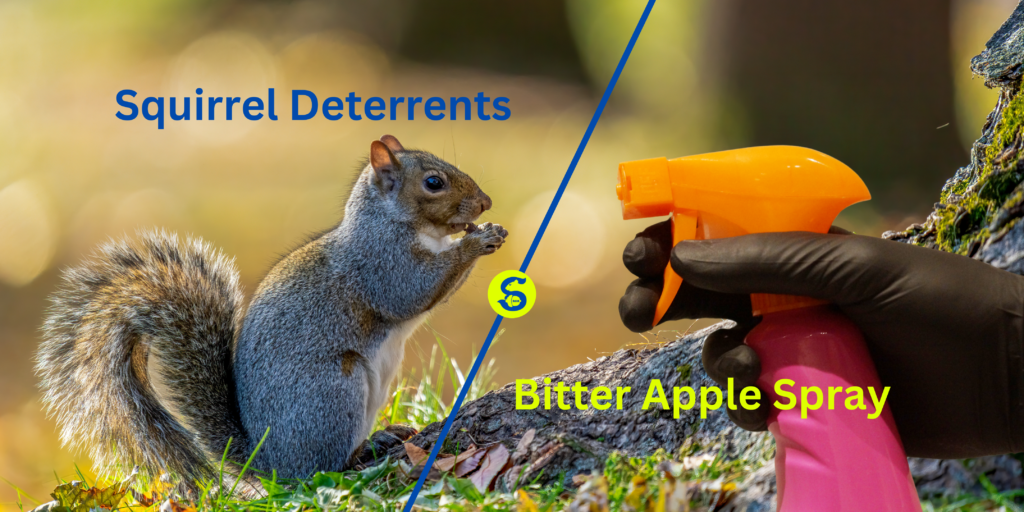
Using Essential Oils as Squirrel Deterrents
Peppermint oil, apple cider vinegar, a mix of water and cayenne pepper spray, and ground chili peppers are some of the best options for repelling squirrels, just put a few drops on a cotton ball. Peppermint oil and other essential oils can be used as natural squirrel repellents. To use, soak cotton balls in these substances and place them strategically around your garden. The strong smells act as a repellent to help keep the squirrels at bay.
DIY Squirrel Repellent Recipes
A mixture of apple cider vinegar and ground chilli peppers in a spray bottle can be used to create a DIY repellent. Spraying this around your garden bed can help repel squirrels. You can also spread dog hair or human hair around the perimeter of your garden. Coffee grounds sprinkled around could assist too.
Benefits of Using Natural Repellents Over Chemicals
Natural repellents are safer for the environment and other animals. They provide a humane way to discourage squirrels without causing harm, and natural repellents aren’t collected inhumanely like predator urine is.
Chemical Squirrel Deterrents
Overview of Commercial Squirrel Repellent Sprays
Commercial repellents often use capsaicin and other ingredients to create a strong, bitter taste. These products are effective in deterring squirrels from treated areas.
Understanding the Safety of Chemical Deterrents
While effective, chemical deterrents should be used carefully to avoid harming other wildlife or contaminating food sources. Following instructions is critical for safe use.
How to Apply Chemical Deterrents Effectively
Apply chemical repellents around the perimeter of gardens, near bird feeders, and on plants. Reapplication may be necessary after rain or heavy watering.
Precautions When Using Chemical Squirrel Deterrents
Avoid using chemicals near edible plants unless they are labeled safe for use. Keep chemicals away from areas frequented by children and pets.
Electronic and Ultrasonic Deterrents
How Ultrasonic Devices Work Against Squirrels
Ultrasonic devices emit high-frequency sounds that are irritating to squirrels but inaudible to humans. These devices can help repel squirrels away from targeted areas.
Types of Electronic Squirrel Repellers
Electronic repellers include ultrasonic devices, motion-activated sprinklers, and electronic scarecrows. Each type offers unique ways to deter squirrels.
Pros and Cons of Using Electronic Deterrents
While effective in many cases, electronic deterrents may require regular maintenance and power sources. They can be more expensive than other methods.
Effective Placement and Maintenance of Electronic Devices
Place electronic deterrents in areas of high squirrel activity, such as near bird feeders or a garden bed. Regularly check their functionality to ensure effectiveness.
Predator Decoys and Visual Deterrents
Utilizing Predator Statues and Scarecrows to Deter Squirrels
Statues of natural predators like fake owls and hawks can be placed in gardens to deter squirrels. Moving these decoys occasionally increases their effectiveness.

How to Use Reflective Objects and Tapes to Scare Squirrels
Reflective tapes and objects can be hung around problem areas. The movement and light reflections can startle squirrels, keeping them away.
Effectiveness of Visual Deterrents
Visual deterrents are most effective when combined with other methods. They work by exploiting the natural fear squirrels have of predators.
Combining Visual Deterrents with Other Methods for Maximum Effectiveness
Using visual deterrents in conjunction with repellents, barriers, and electronic devices provides a comprehensive approach to squirrel control.
Squirrel-Proofing Bird Feeders
The Appeal of Bird Feeders to Squirrels
Bird feeders often attract squirrels due to the abundance of seeds, nuts, and other tasty bird food. Squirrels are known for raiding these feeders, much to the frustration of those who feed birds. If you replace sunflower seeds with safflower seeds, this may help in repelling squirrels as they do not like them but birds do. Also, a bird bath could attract them as well for the water source.
Designing Bird Feeders to Be Squirrel-Proof
Squirrel-proof bird feeders often feature mechanisms like weight-sensitive perches that close off access when a squirrel climbs on. These feeders help keep bird food safe.
Tips for Installing Bird Feeders Away from Squirrel Reach
Installing a bird feeder on tall poles with squirrel baffles and placing them far from tree branches can help keep squirrels from accessing the food. Regularly cleaning up spilled seeds can also discourage squirrels.
Reviews of Popular Squirrel-Proof Bird Feeders
Some of the most effective squirrel-proof bird feeders include those with spinning perches or cages that stop squirrels from reaching the food while still allowing birds to feed.
Long-Term Squirrel Management Strategies
Creating a Squirrel-Unfriendly Environment
To prevent squirrels from becoming a nuisance, create an environment that is less attractive to them. Remove food sources like fallen nuts and bird seeds, and use deterrents around potential nesting sites to repel squirrels.
Educating the Community on Squirrel Deterrent Methods
Educating neighbours and community members about effective squirrel deterrent methods can help reduce the overall squirrel population in an area. Collaboration can lead to more successful management.
The Role of Professional Pest Control Services in Managing Squirrel Populations
Professional wildlife control services can offer specialized advice and solutions for persistent squirrel problems. They can provide humane trapping, removal, and exclusion services.

Legal Considerations in Squirrel Control and Deterrence
It’s important to be aware of local wildlife protection laws when dealing with squirrels. In some areas, certain methods of squirrel control may be restricted or require permits.
Conclusion
Summary of Effective Squirrel Deterrent Strategies
Combining physical barriers, natural and chemical repellents, electronic deterrents, and visual scare tactics can effectively deter squirrels. Squirrel-proofing a bird feeder and creating a squirrel-unfriendly environment are key strategies.
Future Trends in Squirrel Deterrent Technologies
Advances in technology, such as more efficient ultrasonic devices and environmentally friendly repellents, will continue to offer new solutions for squirrel deterrence.
Encouraging Humane and Eco-Friendly Squirrel Management
Using humane methods to deter squirrels is important for maintaining ecological balance. Natural repellents and non-lethal deterrents provide ethical options for managing squirrel populations.
Final Thoughts on Maintaining a Squirrel-Free Environment
By implementing a combination of the deterrents discussed, homeowners can successfully manage and reduce squirrel activity around their homes and gardens, creating a safer and more pleasant environment.
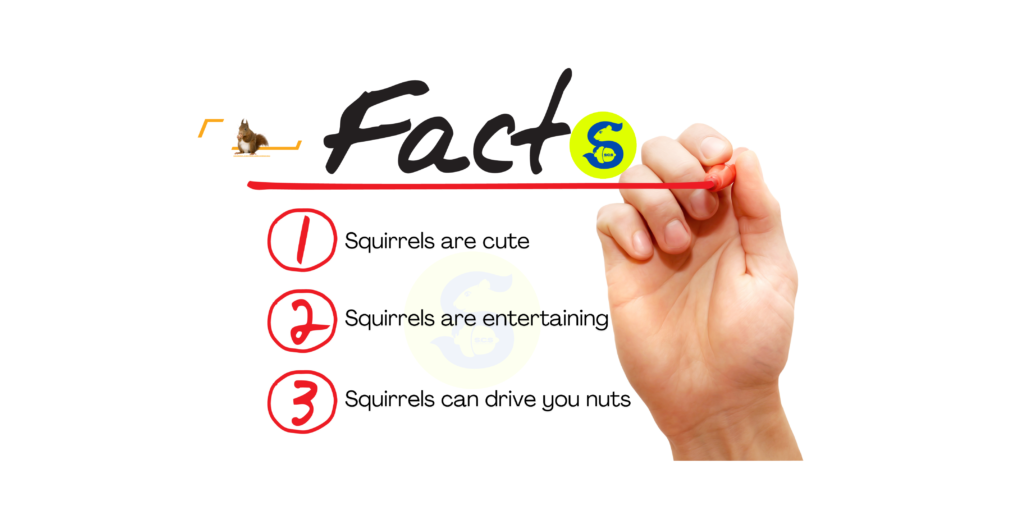
FAQs
What is the most effective squirrel repellent?
A combination of physical barriers, natural repellents, and electronic devices is often the most effective approach to deter squirrels.
Can squirrels harm my pets or children?
While squirrels are generally not aggressive, they can carry diseases and parasites that pose risks to pets and children.
How can I keep squirrels out of my attic?
Seal entry points with wire mesh, use ultrasonic devices and apply natural repellents around potential entry areas to keep squirrels out of attics.
Are chemical squirrel repellents safe for garden use?
Some chemical repellents are safe for garden use, but always check the label for safety information. Natural repellents are a safer alternative.
Do ultrasonic squirrel deterrents really work?
Ultrasonic devices can be effective, especially when combined with other deterrents. Placement and maintenance are crucial for their success.
Can I make a DIY squirrel deterrent at home?
Yes, using ingredients like apple cider vinegar, ground chilli peppers, and peppermint oil, you can create effective DIY squirrel repellents to keep squirrels away.

